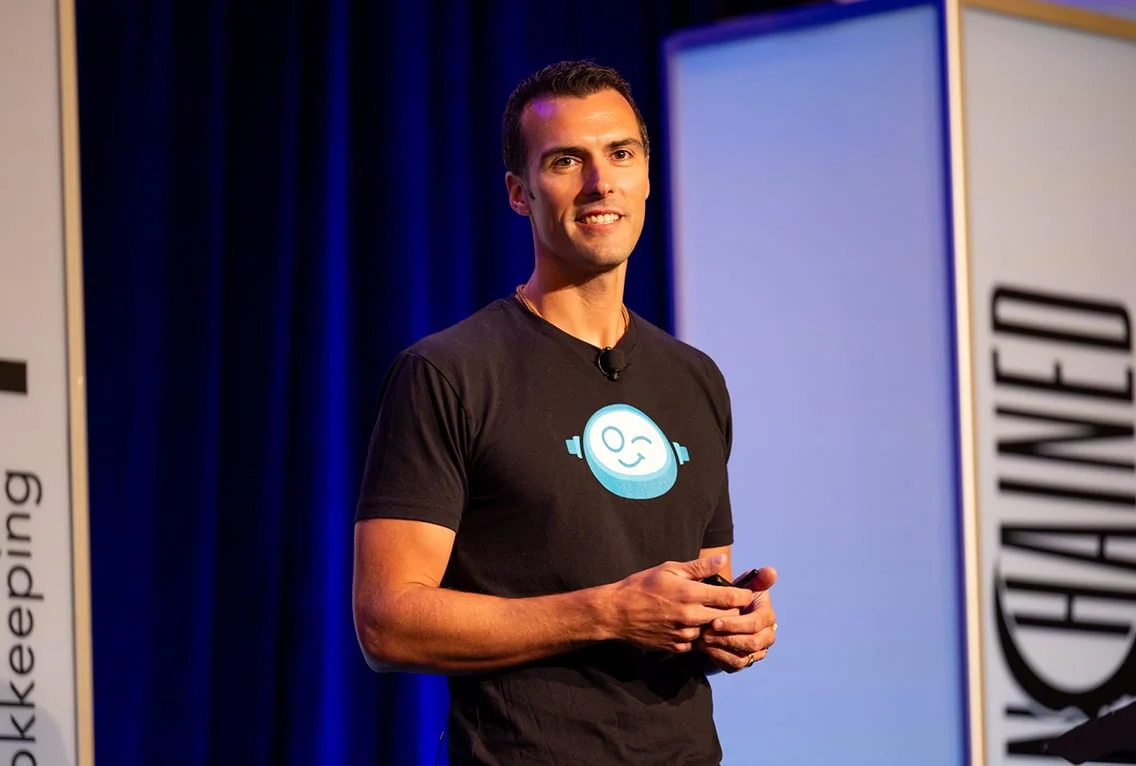By Matt Kanas.
In the accounting world, the ground beneath our feet is shifting faster than ever, thanks to the whirlwind of advancements in technology such as AI, automation, blockchain, and more.
Accountants and firms face daunting challenges around operational approaches, client relationships, and staff retention. But with the right tools and a mindset shift, the changes in our profession can open doors to unprecedented efficiency and insight.
Those willing to embrace change, adapt their strategies, and invest in the future are set to transform their services and client experiences in ways we’re just beginning to imagine.
But for those stuck in the old ways, resisting change? The outlook isn’t so rosy. Here, I get down to the nitty-gritty of this transformation, the hurdles it presents, and the roadmap to success in this new accounting landscape.
The new way of doing accounting
When looking at how accounting is rapidly changing, technology is clearly the main driver of that change. Looming large now is AI, which is a huge part of it.
For example, the data analysis that AI makes possible – being able to crunch numbers really quickly and get data sets – means accountants can then spot anomalies, look at trends, and provide trusted counsel to their clients.
So, AI isn’t necessarily a bad thing; it can be an enabler and a time-saver.
Of course, this all takes time. And if you ask an accountant any day of the week how busy they are, they’ll tell you that they’re working 60 to 80 hours a week – if not more – through busy season.
And then there’s the post-season when they want to take a breather but have to get up and running for tax extension season. So, many accountants are always up against this seasonality and finding the time to learn a new technology.
But they need to put in the smart work now to get dividends down the road. Those dividends are about improving your profitability by using technology to improve your automation and workflows, then moving that into better work, increased prices, and more ideal clients.
Changing tech stacks and the changing face of firms
For any firm, then, one of the biggest challenges is defining their tech stack. It’s been about a decade-long journey to now, and I think we’re going to see the most dramatic shift in tech adoption in the next year to three years.
As firms look to do this, they’ll need to answer a number of questions:
- What does workflow mean?
- What does automation mean, and how do I apply that to my firm?
- Who do I need to hire for my firm (because I not only need accounting pros but also someone who knows how to deploy this technology in the firm)?
And again, the time factor comes into play. People say, ‘I’m too busy; I’ve got to get these 200 tax returns done.’ But putting aside time to look at a new piece of software could pay off through tax season.
For example, if you spend a day or two implementing a revenue-generation platform at the height of tax season, you will be in a much better spot than if you just sat down to do those tax returns.
Proposals and client engagements can be sent out immediately and by the hundreds or thousands, with automated payments and reminders fixed to each engagement, meaning all scopes of work are defined, your billing schedule is set, and payments are automatically collected.
Shaping the future of accounting with innovation
Logan Graf, owner of The Graf Tax Co, is a strong example of an accountant who’s transforming his firm.
He doesn’t just rest on what he originally did – he’s always looking for a new way of doing something. He’s got that open mindset. He listens to the signals that are coming in, and then he makes decisions. He pivots.
Logan recently summed it up nicely on social media, discussing how if you want to increase your profitability or generate higher revenue, you’ve got to have the right package.
You have defined services – you know exactly what you’re offering. You know which services are making the most money for your firm, have the highest margin, and are intellectually challenging to your staff so that they’re happy.
What’s more, you’re constantly looking at your pricing. You’re increasing your pricing. You’re firing clients who negatively impact your firm. You’ve created an automated workflow for payments, such as invoicing and collections.
With pricing, Logan said, having higher prices means fewer clients but more of the clients you want. It means less work, it means better service, and it means higher pay for the team.
The cost of clinging to the past
Indeed, for firms that can’t make this leap of faith and change with the times, the headline might be ‘Heartache’.
The tech change within the accounting profession has been going on for so long – and many accountants know they need to change, but don’t know how or where to start.
These are the firms that are still doing the same work with the clients who want their attention all the time – emails, phone calls, all of it.
And they’re not charging for each of those interactions; they feel the need to continue to service clients as they always have or were taught to, and of course, they’re not getting paid for any of that work.
Work-life balance goes straight out the window in these firms, with teams overworked, underpaid, and likely to leave. And hiring new and good people takes a lot of time and effort. If this happens during tax season, that’s a nightmare.
The new generation of accountants, who are savvy enough and want to grow by acquiring firms, are unlikely to take on a firm that doesn’t have a tech stack with strategic workflows enabled.
They’re more likely to walk away, leaving the older firm no choice but to close the door, take down the website, and miss out on a better retirement.
We’re at the watershed moment. The sooner you start transforming your firm, the sooner you’ll start realizing the benefits, and unlock greater efficiency and profitability in your business.
===

Matt Kanas is managing director for the Americas, at Ignition.
Thanks for reading CPA Practice Advisor!
Subscribe Already registered? Log In
Need more information? Read the FAQs




